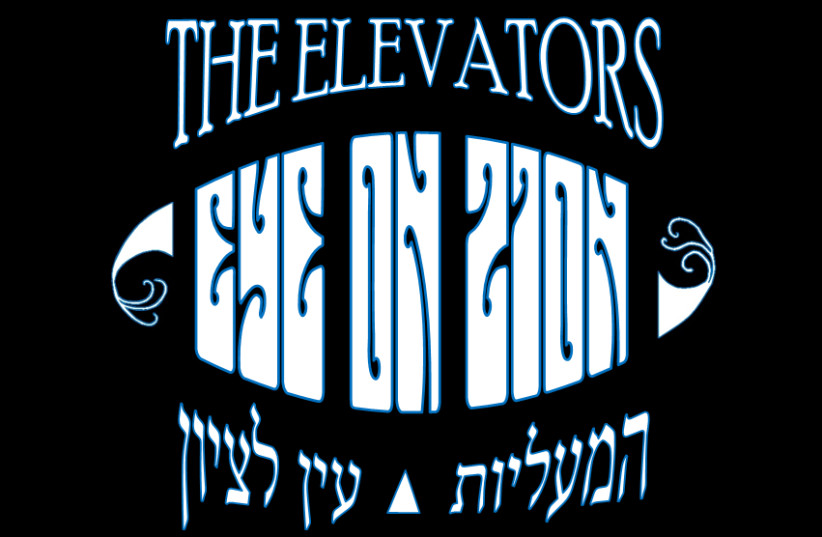It is often the case that newcomers to the scene are more zealous about the base culture than the folks who were born into it. It’s as if they have to work harder to prove to the establishment that they are the real deal.
As many olim can testify, certainly those who came here of their own volition rather than those who, say, came to escape the tyranny of the Soviet Union, the Zionist ideals they took on board in their country of birth were frequently viewed by Sabras and veteran olim as arcane and, often, downright delusional or naïve.
Aryeh Naftaly takes a diametrically opposed approach. That isn’t a neophyte line of thought either. “I’ve been here for 40-something years,” he tells me from his home base in Pardess Hana.
It is not just the duration of his Israeli residency that grants him the requisite street cred to pass learned and reasoned judgment on the matter. During that time he served in an IDF combat unit; and observed and participated in all manner of cultural and sociopolitical developments here; betwixt doing several shifts on the local music scene.
The latest installment of the latter ongoing role recently came to fruition and on Sunday, January 14, he will perform with his band, The Elevators, at the Hatraklin venue in Pardess Hana in a launch gig for the group’s latest release Eye on Zion.
The newest album to be released
It is their sixth album to date, four of which were in Hebrew.
Judging by the lyrics of the dozen tracks, Naftaly has not only observed the Israeli zeitgeist, he has internalized and processed his accrued understanding of the lay of the land here and is pretty adept at expressing it in thought-provoking and entertaining textual form.

The Elevators worked as a trio for some time, with new kid on the block bassist Hillel Coren recently completing the current quartet lineup. Naftaly sings and writes most of the songs and spreads his talents across a plethora of musical means. Naftaly has known the band’s pianist Rob Steiner for eons.
“The band has been going since 2007. But me and Rob have been together since 1976,” says the 62-year-old. “We started playing music together.”
NAFTALY MADE aliyah in 1981, initially setting up base in Tel Aviv before gravitating towards Moshav Mevo Modi’in the stronghold of the troubadour rabbi, Shlomo Carlebach. That infused Naftaly’s musical creations with a spiritual core that still informs his work.
It is certainly evident in Eye of Zion, although the textual base of the album encompasses street-level sobriety, angst, romance, and some delightful comedic daubs, generally of a darker or satirical ilk.
The new release was initially conceived pre-October 7, as some kind of personal response to the ongoing protests surrounding the judicial law reforms (Does anyone remember those days?) and a plea for us to close ranks and get back to the beauty and the positive side of life here.
As someone who chose to make his life here, the bitter internal conflict was even more palpable and painful for Naftaly.
“The Elevators started recording this collection of songs which chronicle our Zionist journey, seeking to reconnect with the ideas, emotions, and experiences that brought us to Israel in the first place and made us want to stay,” he explains.
Eye of Zion was designed to be a curative offering. “Our hope is that our listeners will find comfort, inspiration, and understanding of what is both a personal and an eternal-spiritual-national phenomenon unique in the world.”
The melodic deftness, sunny meditations, and joyful disposition of Naftaly’s early inspirational sources, the likes of Crosby, Stills and Nash and in particular, the Grateful Dead filter through the band’s music and words.
“We basically imported the Grateful Dead to this country,” he states. “We had a couple of bands in the 80s, and in the 90s I had a band called Ein Safek (No Doubt). In 2007 we did a concert called Dead Heads Unite. It was a huge success.”
That vibe still burns brightly in Naftaly’s work and the sense of searching for meaning and for a better life resonates throughout the new record.
“Eye of Zion is a sort of outreach to English-speaking, would-be Zionists, could-be Zionists. Zionism has sort of become a dirty word. The idea is to kind of put it back in the spotlight and say, no it’s not a dirty word it’s a beautiful thing.”
Naftaly has his sights set on nothing less than a revolution in these here parts.
“One of my aspirations when I made aliyah, and it is still true, is to redefine, or at least add my own input, to what being an Israeli is, what Zionism is. People say Israelis or this or that. Israelis have no manners. Well, I’m an Israeli and I do have manners.”
Eye of Zion is not a finger-pointing exercise, far from it. “Milk and Honey Moonlight,” the penultimate track on the record, exudes a feeling that things may take a turn for the better here, sometime. The song opens with: “Sing me of peaceful walks on autumn days. Sing me of quiet talks outside cafes. Show me the places where the children play. In the milk and honey moonlight.”
There may very well be some reasons to be cheerful out there.
For tickets and more information: theelevators1.bandcamp.com/music and https://www.facebook.com/elevators.israel
